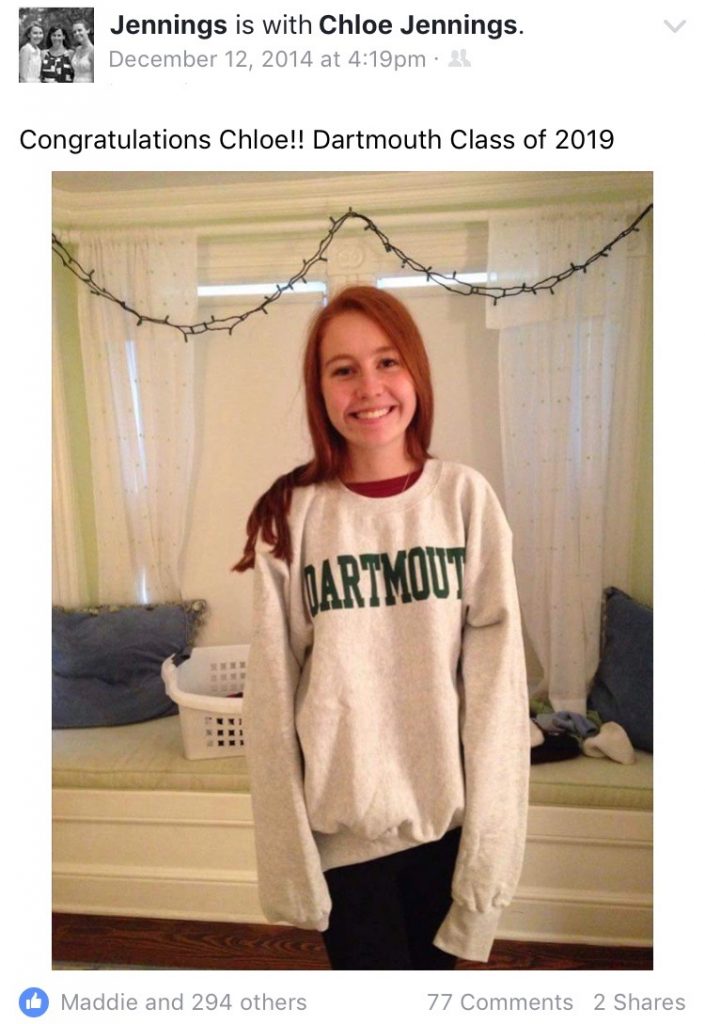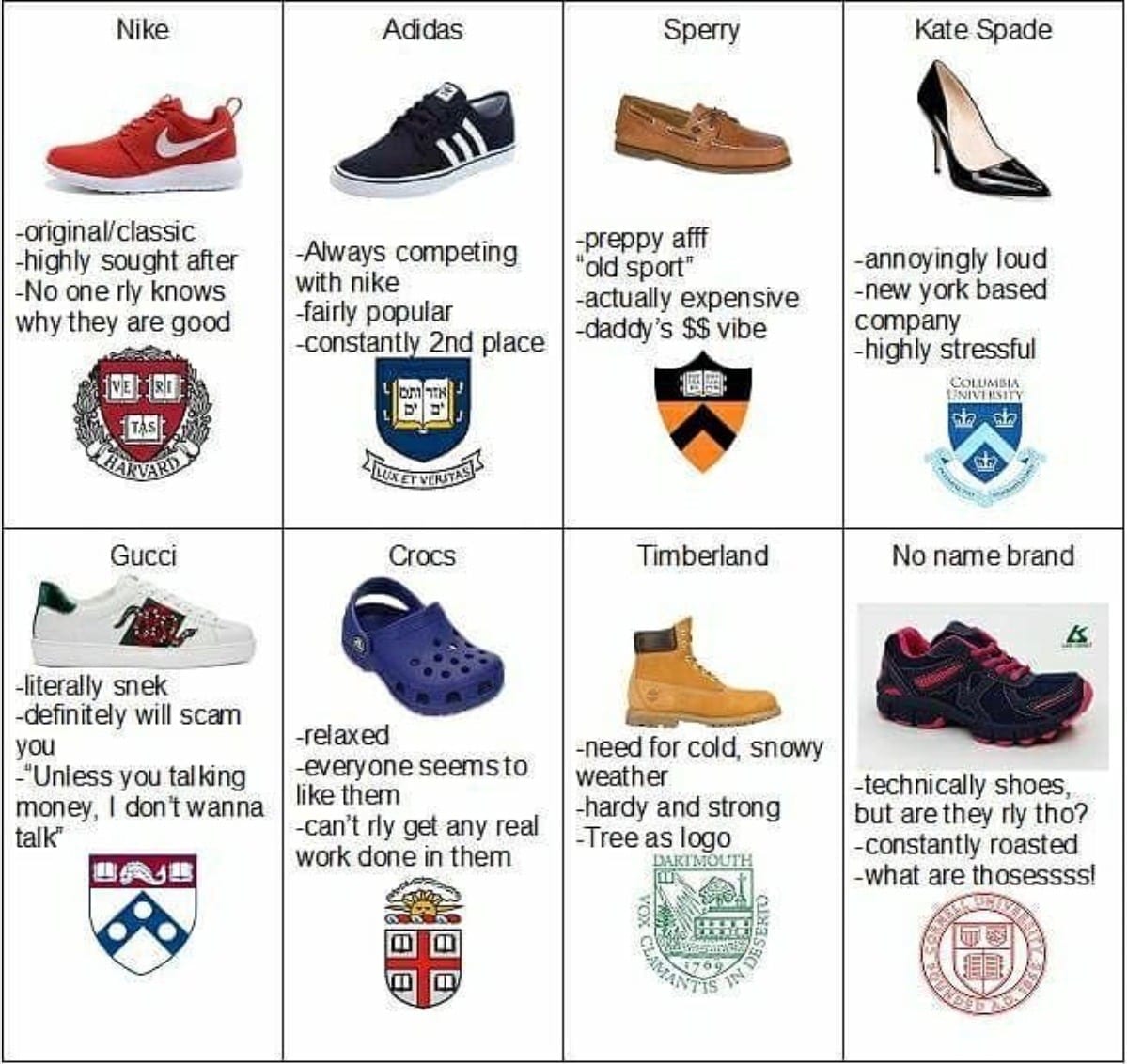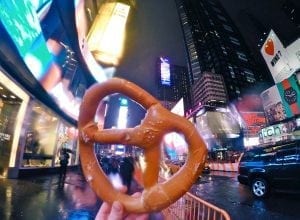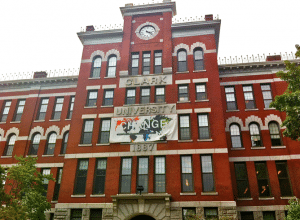The College Brand Personality: Matching Personal and Academic Brands
The era of the college decision
Among the many decisions that we face, I would venture to say that the college decision is one of the most talked-about. Parents and students alike are frenzied by the idea of finding and being accepted into the perfect school. In my high school, there were multiple manifestations of the college panic (to which I inevitably fell victim). First, students obsessively studied, volunteered, played sports, joined clubs, and prepared for the SATs. Second, we engaged in the dreaded college talk—like high school gossip with a weird spin. Omg did you hear she got into Harvard? It’s definitely just cuz her dad went there, she told me her GPA one time and it wasn’t even, like, that good. All of this culminated in a strange metric of accomplishment: the college Facebook post. The post is meant to garner 300+ likes and to elicit admiration and congratulations among peers. UNIVERSITY OF MICHIGAN CLASS OF 2022!!!!!!!!!!!!!!! Ring a bell, anyone?
 With an entire culture dedicated to what purports to be the biggest decision of your life, there is surprisingly little information on how you’re supposed to make this decision in the first place. While my high school peers seemed relatively sure about what they were looking for in a school, the reasoning behind their thinking was simple and inexplicable: “I see myself there.” People rarely discussed specific programs or opportunities that they were interested in pursuing. Instead, you were meant to conclude from some combination of personality, party habits, and academic performance where you’d fit in. To choose a college was to determine the school that best aligned with your personal brand.
With an entire culture dedicated to what purports to be the biggest decision of your life, there is surprisingly little information on how you’re supposed to make this decision in the first place. While my high school peers seemed relatively sure about what they were looking for in a school, the reasoning behind their thinking was simple and inexplicable: “I see myself there.” People rarely discussed specific programs or opportunities that they were interested in pursuing. Instead, you were meant to conclude from some combination of personality, party habits, and academic performance where you’d fit in. To choose a college was to determine the school that best aligned with your personal brand.
College brand personality
So what do college brands look like? For me, it’s less a place than a person. Berkeley is home to the liberal hippie; MIT, the math nerd; Oberlin, the hipster. To decide where you fit in best, you first have to decide on the larger brand that fits you: rural or city school? East Coast or West? NESCAC? Big 10? Ivy League? Then comes the sub-brand. All Ivy League schools, for example, have a somewhat similar culture, but each specific school has its own twist or take on this general idea. Princeton is the pretentious intellectual; Brown, the liberal one; Penn, the corporate one. Prospective students feel drawn to certain brands and often make decisions based on whether they feel like they fit in with the brand: Am I liberal / conservative / intellectual / alternative / preppy / studious / party-ish enough for this school?
Why, when making an academic decision, does emotional resonance play such a key role? From a psychological perspective, it makes sense that we’re inclined to apply to schools whose student bodies resonate with us, as people tend to like others who are similar to them. This is reinforced by a “college culture” that emphasizes the importance of choosing a school that’s a good fit not only academically but also personality-wise. When my purple-haired friend applied to Skidmore, my classmates rushed to affirm that she was so Skidmore and that they couldn’t see her anywhere else. Her alternative persona fit perfectly with Skidmore’s brand and thus confirmed the larger idea that choosing a college requires alignment between your own brand and that of your future school.
To choose a college was to determine the school that best aligned with your personal brand.
Another thing that might elevate emotion over rationale in the college decision-making process is access to information. It’s difficult to ascertain points of differentiation with the plethora of information available about different schools; boring college tours begin to blur together. The private northeastern universities that I toured, for example, all laud a “close community feel.” The smaller schools have an easy case for this; relatively larger universities will assure you that once you find your niche, campus will feel intimate. These schools also obsess over take-your-professor-out-to-lunch programs and blue light safety system, as if they are major points of differentiation rather than laughably ubiquitous features within the niche of small private universities.
The role of the college brand in my own college process
It wasn’t the take-your-professor-out-to-lunch program that led me to choose my early decision school, Dartmouth. It wasn’t even the liberal arts program or the unique “D-Plan” schedule. I’m not even sure I knew what “liberal arts” meant. Instead, it was the school’s feel that made me choose Dartmouth. Walking around, I felt at home with the students on campus. They seemed studious and yet still social. Their preppy clothes reminded me of my hometown. The granola New England vibe resonated with me as someone who had been dragged on more than a few family camping trips. (I begrudgingly enjoyed them all.) The campus seemed just small enough not to be oppressive, just isolated enough to necessitate a tight-knit community, just uniform enough in appearance without being bland.

Me reluctantly becoming the outdoorswoman my parents always wanted me to be.
There is insight to be gleaned from my rather unscientific decision-making process. When faced with decisions, our brains are hard-wired to use the least amount of energy possible to come up with a solution. Thus, 95% of our thinking is System 1 thinking: fast, instinctive, and emotional. The remaining 5% is devoted to System 2 thinking, which is slow, conscious, and effortful. The academic programs and offerings that claim to be differentiating require extra mental effort (System 2 thinking) to process. On the other hand, considering the appeal of a college’s brand as personified in the prototypical student requires only minimal mental effort: System 1 thinking. Given the complexity and volume of offers that prospective students are presented with during the college search, it makes sense that students tune out the noise and turn toward the most easily understandable offer: the college brand personality.
What colleges could learn from the student decision-making process
The college process is a famously stressful time for prospective students who need to effectively market themselves and their accomplishments to succeed in a competitive application process. But pressures are also mounting for universities to attract students in a crowded marketplace. This means moving toward a greater focus on branding and acknowledging that the appeal of a college lies beyond its academics.
 Schools who find themselves dissatisfied with their brand reputation face the challenge of trying to adjust public perception. This is no easy task. In recent years, accounts of debauchery, abuse of privilege, and hazing at Dartmouth have damaged the school’s reputation. Dartmouth has since undertaken a rebranding effort, initiating a hard alcohol ban and cracking down on Greek life, among other things. This effort notwithstanding, my parents’ friends still jokingly refer to Dartmouth as “the party school,” and the Urban Dictionary definition of Dartmouth still reads, “Small Ivy league liberal arts college in New Hampshire with a study hard, party harder atmosphere.”
Schools who find themselves dissatisfied with their brand reputation face the challenge of trying to adjust public perception. This is no easy task. In recent years, accounts of debauchery, abuse of privilege, and hazing at Dartmouth have damaged the school’s reputation. Dartmouth has since undertaken a rebranding effort, initiating a hard alcohol ban and cracking down on Greek life, among other things. This effort notwithstanding, my parents’ friends still jokingly refer to Dartmouth as “the party school,” and the Urban Dictionary definition of Dartmouth still reads, “Small Ivy league liberal arts college in New Hampshire with a study hard, party harder atmosphere.”
Brand personalities are as significant as they are stubborn; rebranding can happen, but it does not happen overnight. The weight that prospective students inevitably place on an academic institution’s brand personality over other considerations suggests that colleges should be particularly attuned to the type of student their current brand personalities are drawing into the applicant pool. In this age of social media and star ratings, no one is immune to the power of the brand.
___
Chloe is a junior at Dartmouth College where she is double majoring in Government and Psychology. As a winter intern at Tronvig Group, Chloe earned a crash course in brand strategy and Brooklyn lifestyle.
___
Photos by the author; Ivy Leagues as shoes image taken from elitistmemes














